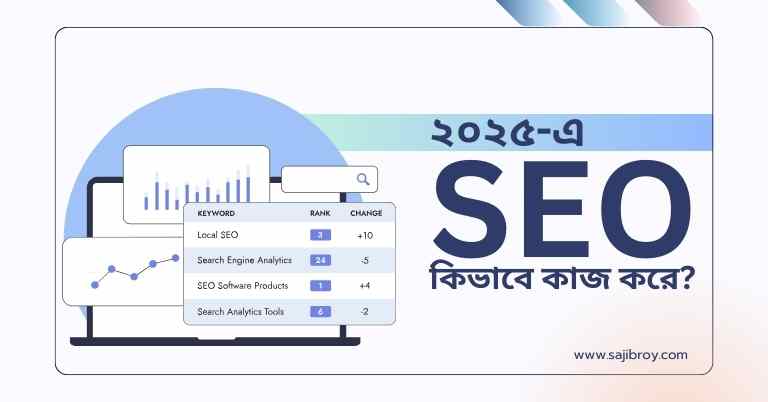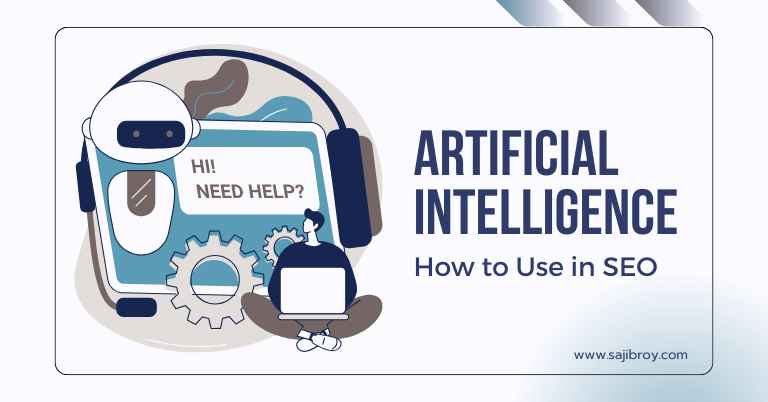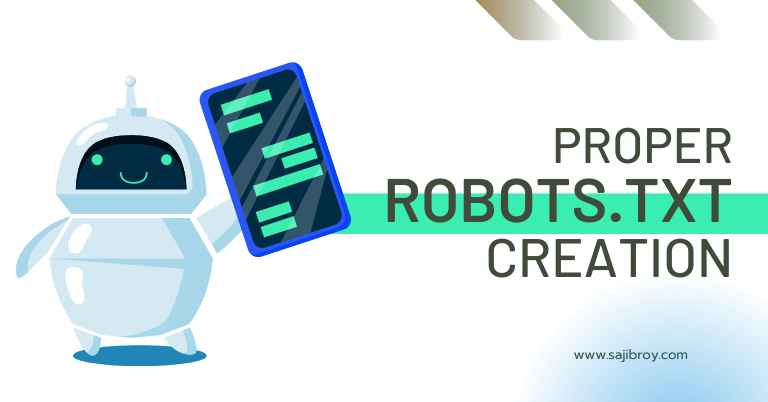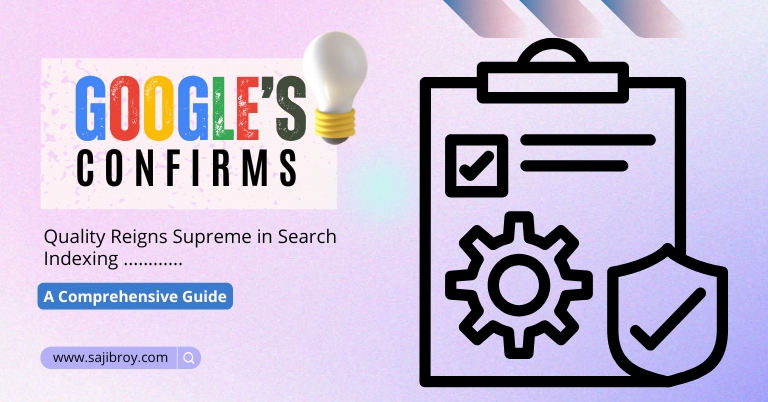The digital marketing landscape is evolving. The rise of artificial intelligence (AI) is reshaping how we approach SEO and content creation.
But what does this mean for SEO professionals and content creators?
AI is now capable of generating SEO-optimized content. This content is not only readable and engaging but also designed to rank well in search engine results.
This development raises a crucial question. Can AI write SEO-optimized content three times faster than human writers?
This article aims to answer that question. We will delve into the capabilities of AI in producing SEO-optimized content. We will also compare its efficiency to that of human writers.
We will explore AI writing tools. These tools are revolutionizing content creation, making it faster and more efficient.
We will also examine how AI can be integrated into your SEO content strategy, including using AI for SEO data analytics and analysis.
We will examine case studies that showcase the effectiveness of AI in producing SEO content. These real-world examples provide valuable insights into the potential of AI in this field.
We will also discuss the future of AI in SEO and content marketing. This includes the ethical considerations and the question of authenticity in AI-generated content.
The goal is to provide a comprehensive overview of AI’s role in SEO-optimized content creation. Whether you’re a digital marketer, an SEO specialist, a content creator, or a business owner, this article is for you.
So, let’s dive in. Let’s explore the world of AI SEO-optimized content and discover if AI can indeed outpace human writers in speed and efficiency.
Let's See the Topic Overview
The Evolution of AI in SEO Content Creation
AI’s role in content creation has drastically evolved over the past decade. What began as simple text generation has blossomed into a sophisticated process. AI now crafts detailed, SEO-optimized content with precision.
Early AI tools were basic. They could generate text, but the content lacked depth and quality. Over time, AI technologies have dramatically improved. The integration of machine learning and natural language processing (NLP) has been pivotal.
These advancements allow AI to understand context better. AI can now interpret search intent, making content more relevant to user queries. This has enhanced the value of AI-generated content in SEO strategies.
Here’s how AI’s role has expanded:
- Improved comprehension of user intent and search algorithms.
- Enhanced ability to structure content for SEO.
- Greater accuracy in keyword integration and topic relevance.
The integration of AI in SEO involves several key technologies. Machine learning processes vast amounts of data. NLP helps AI understand and generate human-like text. Together, these technologies form a robust framework for SEO content creation.
AI’s capacity to analyze data is another game-changer. This ability allows for more strategic content planning. AI identifies trending topics, suggests keywords, and optimizes content accordingly.
The impact on SEO content strategy is significant. With AI, marketers can produce optimized content more consistently and efficiently. This efficiency allows them to focus on broader marketing goals rather than the minutiae of content creation.
The potential of AI in content creation is immense. As technology advances, AI continues to refine its ability to create engaging, SEO-friendly content. This ongoing evolution offers exciting opportunities and challenges for content marketers.

Understanding AI SEO-Optimized Content
AI SEO-optimized content is more than just keyword stuffing. It involves creating content that meets search engine guidelines and engages readers. The goal is to balance technical SEO with readability and engagement.
AI tools excel in this realm by analyzing user behavior and search patterns. They use this data to generate content that aligns with user intent. This strategic approach enhances content relevance and search visibility.
Keyword research is crucial in SEO. AI excels in identifying high-potential keywords that align with a user’s search queries. AI’s analytical capabilities allow for efficient keyword integration. This improves content rankability in search results.
Content structure is vital for both readers and search engines. AI can structure articles in a way that aids reader comprehension and satisfies search engine algorithms. This includes clear headings, concise paragraphs, and relevant subtopics.
AI also ensures readability. By understanding user data, AI can adjust tone, style, and complexity to suit target audiences. This makes content more engaging and accessible to a wider audience.
AI’s ability to analyze vast amounts of SEO data allows it to generate insights that humans might overlook. This leads to more strategic and optimized content creation. As a result, AI SEO-optimized content is not just efficient; it’s effective in achieving SEO goals.
AI Writing Tools: A Game Changer for Content Marketers
AI writing tools are transforming content marketing. These tools streamline content creation, making it faster and more efficient. They’re becoming indispensable for marketers looking to enhance their SEO strategies.
One of the main advantages of AI writing tools is speed. These tools can generate large volumes of content in minutes, a task that would take a human writer much longer. This allows marketers to maintain a regular publishing schedule, which is crucial for SEO.
AI writing tools provide consistency. They adhere to set guidelines, ensuring each piece of content aligns with brand voice and SEO requirements. This consistency is important for building authority and trust with audiences.
Here’s how AI writing tools benefit marketers:
- High-speed content production.
- Consistent adherence to SEO and brand guidelines.
- Enhanced ability for data-driven content strategies.
These tools also offer personalization features. AI can tailor content to meet the preferences and interests of target audiences. This level of personalization increases engagement and enhances the user experience.
Moreover, AI tools assist in content editing. They provide real-time feedback on grammar, style, and SEO, making the editing process more efficient. This leads to higher quality and more polished final drafts.
Despite their benefits, AI writing tools have limitations. They may struggle with understanding nuanced topics or creative expression. Thus, human oversight remains critical. Marketers must review AI-generated content to ensure accuracy and relevance.
Overall, AI writing tools are a game changer, providing unparalleled speed, consistency, and personalization in content creation. They’re essential for any marketer aiming to leverage AI for a robust SEO content strategy.
AI vs. Human Writers: A Speed Comparison
The age-old debate between AI and human writers continues. When it comes to speed, AI holds a significant advantage. AI can produce content at a pace that humans simply can’t match.
Human writers bring creativity and depth to their work. Crafting a well-researched article takes time. It involves drafting, editing, and perfecting the tone and style. Human writers dedicate hours to produce a piece of content that is both engaging and informative.
In contrast, AI can generate articles within minutes. An AI writing tool needs only a topic and keywords to create content. This efficiency is due to AI’s ability to analyze vast data sets quickly.
While speed is a strong suit for AI, human writers excel in areas such as emotional intelligence. They understand nuance and cultural context. This allows them to infuse storytelling elements into their work.
The comparison between AI and human speed shows:
- AI excels in bulk content production.
- Humans bring creativity and contextual understanding.
- AI tools generate content faster but might lack depth.
However, AI tools continue to improve. They are incorporating advanced algorithms to simulate human-like creativity. But understanding complex narratives and emotions remains a challenge.
Despite AI’s speed, the quality may sometimes be compromised. Human oversight is often required to ensure AI-generated content aligns with brand voice and SEO goals. This collaboration can streamline content production while maintaining quality standards.
In summary, AI’s speed is unmatched. It allows for rapid content generation, which is vital in today’s fast-paced digital world. However, human writers add a layer of depth and creativity that AI has yet to replicate fully.
How AI Writing Tools Work
AI writing tools leverage complex algorithms to produce content. These tools utilize machine learning and natural language processing (NLP) to generate text that mimics human writing.
The process begins with data input. Users provide AI with keywords or topics. The AI then processes this information using its language models. These models are trained on vast text datasets, allowing the AI to understand context and structure.
Once the AI receives the initial data, it begins content generation. The machine learning algorithms guide the creation process. They ensure that the output is coherent and aligns with the input parameters.
NLP plays a crucial role. It helps the AI interpret natural language, ensuring the generated content is readable and logical. This process involves analyzing sentence structure, grammar, and tone to produce quality content.
One of the significant benefits of AI writing tools is their adaptability. They can produce a wide range of content formats. Whether it’s articles, product descriptions, or social media posts, AI can tailor its output to meet specific needs.
The final step often involves human review. While AI tools are efficient, they may not capture every nuance. A human editor reviews the content to ensure accuracy and relevancy. This collaboration enhances the final product, combining AI’s efficiency with human insight.
Measuring the Speed of AI Content Production
Quantifying the speed of AI content production involves assessing several factors. These include word count, the complexity of the topic, and the tool’s processing capabilities. AI tools have set impressive benchmarks for content production speed.
On average, an AI writing tool can generate a 1,000-word article in just a few minutes. This speed is unparalleled compared to human writers, who may take hours to produce the same content length. The AI’s rapid data processing capabilities facilitate this feat.
Key factors impacting AI’s production speed include:
- Complexity of the topic.
- Input data quality.
- Tool’s configuration and processing capabilities.
The complexity of the topic can affect speed. Simple, straightforward subjects allow AI to work faster. In contrast, more complex topics may require additional processing time. The AI must analyze more data to ensure accuracy and relevance.
Input data quality is crucial. Well-structured keywords and clear directives enhance output speed. AI tools perform optimally with precise, focused input information.
Finally, the tool’s configuration impacts speed. Advanced AI platforms with robust processing capabilities handle complex tasks more quickly. They can generate polished content with fewer delays.
Despite AI’s rapid production, quality control is essential. Speed should not compromise the content’s accuracy or relevance. Human oversight remains vital to ensure the final product meets high standards.
In conclusion, AI tools excel in speed, producing content in a fraction of the time needed by human writers. This efficiency supports businesses that require rapid content creation to stay competitive in the digital landscape.
The Quality of AI-Generated Content
Quality is paramount in content creation. While AI excels in speed, its quality can vary. AI-generated content often meets basic SEO requirements, making it valuable for many scenarios.
AI tools use vast databases to pull in relevant information quickly. This results in articles that contain accurate facts and figures. However, producing coherent narrative arcs or stylistic flair remains challenging for AI.
A major issue is depth. AI can synthesize existing information, but creating unique insights is difficult. It struggles with developing content that demands sophisticated reasoning or creative flair.
A list of AI content strengths includes:
- Rapid data analysis.
- Consistent formatting and style.
- Adherence to simple SEO guidelines.
Yet, potential drawbacks are evident. AI can over-optimize, stuffing keywords awkwardly. Such practices can decrease readability. The tone may also come across as robotic or lacking warmth, which affects engagement.
Quality can sometimes fluctuate depending on input variables. Precise guidance often results in better outputs. Vague or inaccurate instructions yield less satisfying outcomes.
The dataset quality used to train AI models is crucial. High-quality data allows AI to generate better content. Poor datasets can lead to incorrect or biased information.
AI struggles to incorporate emotion effectively. Conveying feelings and human experiences through writing requires nuanced understanding. This limitation can make AI content feel detached.
Collaboration is vital in mitigating AI’s limitations. Human editors refine content, injecting creativity and emotion where needed. They can also correct any inaccuracies, ensuring content consistency.
Despite its challenges, AI’s quality is improving. Machine learning advancements continue to refine AI’s ability to generate human-like text. These improvements promise better quality as technology evolves.
In many cases, AI-generated content serves as an excellent starting point. Human writers can further refine and enhance these drafts, culminating in high-quality articles that captivate audiences.
Can AI Truly Grasp SEO Nuances?
Understanding SEO nuances is complex, even for seasoned marketers. AI tools are equipped to manage many SEO tasks. However, capturing intricate details remains a work in progress.
One area where AI shines is keyword optimization. Its algorithms scan through large volumes of data to understand keyword performance. AI then places these keywords strategically within the text.
Despite this, AI’s understanding of search intent is limited. Search intent involves understanding why users search for particular terms. This process requires empathy, something AI hasn’t mastered yet.
Search algorithms evolve frequently. AI must adapt quickly to these changes to ensure content remains relevant. Many AI systems struggle to maintain parity with search engine updates.
Contextual relevance also poses challenges. AI might grasp individual keywords, but linking content to broader themes can be tricky. This limitation affects the AI’s ability to engage readers meaningfully.
AI struggles with subtleties in language. English, with its idioms and regional variations, is particularly challenging. This often results in awkward phrasing or misinterpretations by AI.
Still, AI can process vast amounts of data faster than any human. This enables it to glean broader trends and patterns. While it may not master fine SEO details yet, AI’s foundational capabilities aid many marketers.
Human guidance remains essential. SEO specialists must work alongside AI to refine strategies and ensure alignment with current SEO best practices. This partnership is key to transcending basic keyword placement.
Human Oversight in AI Content Creation
Human oversight is critical in AI content creation. Machines may produce text, but humans ensure its quality and relevance. A collaborative approach between AI and humans produces the best outcomes.
Humans add value by injecting creativity and emotion into content. AI can handle facts and figures, but storytelling is a uniquely human skill. Emotional narratives foster deeper connections with readers.
Editing is another area where humans excel. While AI generates initial drafts, editors refine the flow and clarity. They ensure that the content aligns with brand voice, making it more relatable.
Human oversight helps correct AI’s errors. AI might misinterpret data or place keywords awkwardly. Skilled editors spot these errors and make necessary adjustments to improve accuracy.
Ethical considerations also come into play. AI tools may unintentionally produce biased content. Human review is essential to identify and eliminate such biases, ensuring fairness and inclusion.
Humans can make strategic decisions about content direction. They understand market trends and audience preferences better than machines. This insight ensures that AI-generated content meets strategic goals.
Moreover, human involvement provides assurance of originality. AI can sometimes regurgitate existing content without realizing it. Vigilant oversight ensures content remains unique and free from plagiarism.
Incorporating feedback is another area where humans outperform AI. Understanding reader reactions and adjusting content accordingly is crucial for long-term success.
Finally, collaboration leads to innovation. By leveraging AI’s speed and efficiency with human creativity, organizations can create content that is not only fast but also rich in quality and engagement.
While AI offers numerous advantages, human oversight remains indispensable. It is this blend of human and machine capabilities that enables truly optimized content creation.
Integrating AI into Your SEO Content Strategy
AI is reshaping SEO strategies at a rapid pace. For businesses, integrating AI tools can enhance and streamline the content creation process. These tools provide insights that were once challenging to gather manually.
Creating a well-defined SEO content strategy begins with understanding AI’s potential. AI can automate repetitive tasks. This allows marketers to focus more on strategic planning and less on data crunching.
By incorporating AI, marketers can refine keyword research. AI tools analyze vast amounts of data to identify high-performing keywords. This research improves targeting, making content more relevant to audiences.
AI also assists in content distribution. Algorithms determine the best times to publish articles, enhancing visibility. This strategic timing increases the chance of reaching broader audiences.
A collaborative approach in content production can amplify results. By pairing AI tools with human creativity, teams can achieve a balance between efficiency and uniqueness.
AI’s predictive analytics are vital for forecasting trends. By understanding past data, AI anticipates future user preferences. This foresight allows marketers to stay ahead of the curve.
Considerations for an AI-enhanced strategy include:
- Assessing the strengths and weaknesses of current tools.
- Ensuring team members are trained to use AI effectively.
- Regularly reviewing and updating AI strategies for alignment with goals.
Budget considerations are also crucial. While AI tools can reduce costs long-term, they require initial investments. Assessing potential return on investment helps in decision-making.
Finally, integrating AI into an SEO strategy should be gradual. This allows teams to adapt and adjust workflows without overwhelming disruptions. Over time, this integration results in enhanced productivity and performance.
AI for SEO Data Analytics and Analysis
AI revolutionizes how data analytics supports SEO. The key advantage lies in AI’s ability to process vast datasets swiftly. This capability uncovers trends and patterns that might otherwise go unnoticed.
AI’s data analytics offer detailed insights into user behavior. Understanding how users interact with content helps refine strategies. This ensures content aligns with audience needs and preferences.
Predictive analytics allow for anticipating future shifts in user behavior. AI forecasts which topics will gain traction. This predictive power lets marketers tailor content proactively.
A typical setup involves:
- Utilizing AI for competitor analysis to identify market gaps.
- Leveraging AI tools for audience segmentation.
- Monitoring and analyzing SEO performance metrics.
Integrating AI with existing systems offers seamless analysis. Advanced algorithms dissect complex data, providing clear insights. This reduces the complexity of data interpretation.
Scalability is a key feature of AI analytics. As data volumes grow, AI tools can handle increased loads without compromising speed. This scalability ensures consistent performance.
AI’s real-time capabilities enhance decision-making. Immediate feedback allows for quick strategy adjustments. This agility is vital in the fast-paced digital landscape.
Educating team members on AI’s data analytics tools is crucial. Proper training maximizes the tool’s potential. It ensures the team leverages insights effectively for sustained growth.
Successful implementation means staying updated with AI advancements. Continuous learning ensures tools remain relevant. This ongoing commitment enhances long-term strategy success.
How to Use AI for SEO: Gravitating Towards Efficiency
Efficiency is the cornerstone of successful SEO strategies. AI brings unprecedented efficiency to the table, aiding marketers with various tasks. Understanding how to leverage AI is vital for maximizing productivity.
AI handles keyword planning adeptly. By analyzing data trends, AI suggests optimal keywords. This enhances targeting accuracy, reducing the guesswork in content planning.
A successful approach includes:
- Incorporating AI for on-page SEO recommendations.
- Using AI to automate content scheduling.
- Employing AI for competitor analysis and market positioning.
Content creation itself benefits from AI’s capabilities. With AI, drafting content becomes faster. It generates content outlines based on specific parameters, providing a structured framework for writers.
Efficiency extends to content optimization. AI evaluates which headlines or meta descriptions perform best. This data-driven approach refines content for peak performance.
AI also benefits link-building strategies. It identifies potential partners and manages outreach efforts. This streamlines link-building initiatives, maximizing return on effort.
Regular reviews ensure AI alignment with current objectives. SEO is dynamic; AI settings might require tweaks. By staying proactive, marketers maintain control over their AI-driven strategies.
Lastly, a blend of AI automation with human oversight achieves optimal results. This collaboration leverages AI’s speed with human creativity, creating engaging and effective SEO content.
AI Writing Tools in Action
AI writing tools are revolutionizing content production. Businesses now produce high-quality, SEO-optimized content swiftly and efficiently. These tools aren’t just about speed; they enhance creativity and accuracy.
A digital marketing firm adopted an AI writing assistant. Their content team saw a 40% increase in productivity. They quickly generated content for diverse client needs without compromising quality or relevance.
A fashion blog leveraged AI to create trend-focused articles. The AI tool analyzed social media and search data for topics gaining traction. As a result, their readership and page views grew significantly.
A SaaS company used AI to draft technical content. This allowed their experts to focus on refining content rather than starting from scratch. This strategy ensured technical accuracy while expanding content output.
For a news outlet, an AI tool helped in covering rapidly emerging stories. By generating initial drafts, journalists focused more on investigative reporting. This balanced speed with journalistic depth.
In the food industry, a recipe site employed AI to refresh old content. The tool updated recipes with new keywords and clearer instructions. This enhanced searchability and user satisfaction, leading to more repeat visitors.
Overall, AI writing tools demonstrate versatility. They adapt to various sectors and content types, showcasing their potential to innovate how businesses approach written communication.
The Impact of AI on Traffic and Rankings
AI has a tangible impact on website traffic and search rankings. Businesses adopting AI tools often experience measurable improvements in these areas. This shift signifies an evolution in digital marketing practices.
A midsize retail company integrated AI for keyword analysis. Their search visibility improved as they targeted relevant, high-volume keywords. This change increased organic traffic by 30% over a quarter.
In education, a tutoring service employed AI for SEO content strategy. By aligning their website content more effectively with search intent, they rose in search engine rankings. This resulted in more students enrolling in their programs.
A technology blog utilized AI for content optimization. The tool recommended adjustments to their articles based on competitor analysis. Consequently, the site saw a boost in traffic, outranking competitors for several key topics.
A regional real estate agency embraced AI-driven insights. By optimizing local SEO efforts, they climbed the rankings for geographically relevant searches. This boosted their brand recognition and client inquiries.
Healthcare websites faced strict competition. However, by employing AI for generating precise meta descriptions, an online pharmacy noticed improved click-through rates. This led to a higher conversion rate without additional advertising costs.
A nonprofit organization used AI to tailor content more closely to donor interests. Optimizing for high-engagement keywords increased their visibility. As a result, their website saw heightened traffic and increased donations.
Through these examples, it’s clear that AI plays a pivotal role. Its analytical capabilities empower businesses to refine their SEO strategies, transforming web traffic and ranking outcomes.
The Future of AI in SEO and Content Marketing
AI continues to shape the landscape of SEO and content marketing. Its capabilities are expanding, offering new opportunities for businesses to enhance their strategies. As AI evolves, its role in automating and personalizing content becomes more pronounced.
One significant advancement is in natural language processing (NLP). NLP enables AI to understand context and sentiment, further enhancing content relevance. As a result, AI tools can produce content that resonates more deeply with audiences.
Content marketers are exploring AI’s potential for content personalization. AI algorithms analyze user behavior to tailor content to individual preferences. This trend is leading to more engaging and targeted marketing efforts.
AI’s prowess in data analysis is revolutionizing SEO. By identifying patterns and trends, AI offers insights that were previously inaccessible. These insights enable marketers to refine their SEO strategies with greater precision.
Interactive content is also on the rise. AI empowers the creation of dynamic and engaging content experiences. This includes chatbots, quizzes, and virtual reality elements that captivate audiences.
The potential for AI extends into multilingual content creation. AI tools translate content accurately and optimally for diverse audiences. This function broadens the global reach for businesses without compromising message quality.
The integration of AI with voice search optimization is gaining traction. As voice-activated devices become common, optimizing for voice searches is crucial. AI is fundamental in adapting content to meet these new search behaviors.
AI’s role in competitive analysis offers a strategic edge. Businesses can assess their rivals’ strategies and adjust their own accordingly. This real-time adaptability enhances competitive positioning in the market.
In summary, AI’s impact on SEO and content marketing is profound. It enhances efficiency, personalization, and engagement. Businesses poised to harness these technologies will likely see substantial benefits.
Preparing for the AI Revolution in SEO
Adapting to the AI revolution requires strategic planning. Businesses must embrace AI’s capabilities to stay competitive in SEO. This shift begins with understanding AI’s potential and applying it effectively within organizational strategies.
Educating teams about AI is a key step. Providing training on AI tools and their applications in SEO fosters a competent workforce. Knowledgeable employees can leverage AI tools more effectively, driving better results.
Experimentation is essential. Testing different AI tools and strategies helps determine what works best for a specific business. These experiments must be supported by robust data analysis to make informed decisions.
Integration with existing systems enhances AI effectiveness. AI should work seamlessly with current marketing and content management platforms. This integration ensures smooth operations and maximizes the benefits of AI tools.
Collaboration between humans and AI should be balanced. While AI offers speed and data-driven insights, human creativity and oversight remain indispensable. Combining these strengths yields optimal content quality and strategy.
Monitoring AI advancements is vital. Keeping abreast of new tools and features ensures that businesses remain at the cutting edge. Regular updates and refinements to strategies are needed to stay ahead in the AI-driven landscape.
Preparing for AI involves both mindset and toolset. Strategic investment in AI technologies, combined with human ingenuity, places businesses at the forefront of the evolving SEO scene.
Ethical Considerations and Authenticity in AI-Generated Content
The rise of AI in content creation brings ethical challenges. Addressing these is crucial to maintain trust and authenticity. Clear guidelines and oversight are necessary to navigate this evolving terrain responsibly.
Transparency is key. Content generated by AI should be clearly labeled to inform audiences. This helps manage expectations and supports informed content consumption.
Ensuring accuracy in AI-generated content is essential. Human oversight should verify facts and relevance. This approach mitigates potential inaccuracies inherent in machine-generated content.
Plagiarism is a concern with automated content. AI tools must be programmed to create original content consistently. Incorporating plagiarism detection systems ensures content integrity and originality.
Representation and bias in AI content must be addressed. AI algorithms learn from data, which can include biased information. Regular audits are necessary to ensure content produced is equitable and impartial.
Privacy is another ethical consideration. AI uses vast amounts of data to enhance content relevance. Businesses must adhere to strict data privacy laws to protect user information and maintain trust.
Maintaining the human element in content helps preserve authenticity. While AI tools offer speed and efficiency, human input is crucial for emotional resonance. Balancing AI efficiency with human creativity is vital for authentic content.
In conclusion, ethical practices in AI content creation are indispensable. Businesses must approach AI with integrity, ensuring that content remains trustworthy and genuine. This commitment to ethics in AI fosters long-term audience engagement and loyalty.
Embracing AI for Enhanced SEO Content Creation
The role of AI in transforming SEO content creation is undeniable. As AI technologies advance, they open new horizons for marketers. These tools provide speed, efficiency, and precision previously unattainable.
AI offers unique advantages in data analysis and personalization. Its capacity to handle vast datasets allows marketers to tailor strategies accurately. This personalization is key to addressing diverse consumer needs.
AI’s speed in content production is a game changer. It allows for rapid generation of SEO-optimized content. Businesses can maintain a competitive edge without sacrificing quality or efficiency.
However, AI’s power must be harnessed responsibly. Human oversight ensures that AI content remains ethical and relevant. The combination of human creativity and AI speed brings optimal results.
Integrating AI into an SEO strategy requires intention and understanding. Businesses must align AI capabilities with their goals. A thoughtful approach will maximize AI’s benefits and reinforce brand presence.
The future of SEO is intricately linked with AI advancements. Companies that embrace AI innovations will lead the charge. By staying ahead, they can enhance their SEO strategies and achieve sustainable growth.
Final Thoughts on AI SEO-Optimized Content
AI has redefined SEO content creation by making it faster and more data-driven. It empowers marketers with tools to improve efficiency and precision. However, successful integration requires more than just adopting new technologies.
To maximize AI’s potential, businesses must balance technology with human insight. AI should augment human efforts, not replace them. This synergy leads to richer, more engaging content.
Moreover, as AI continues to develop, staying informed is crucial. Regular updates and training can ensure that teams effectively leverage AI advancements. This preparedness helps maintain a competitive edge.
Ultimately, AI is a powerful ally in the SEO realm. Businesses embracing its capabilities stand to gain significant advantages. They can enhance content strategies and achieve remarkable results.
The Role of Human Creativity in the Age of AI
In the rapidly evolving digital landscape, human creativity remains essential. AI brings speed and accuracy, yet it cannot replicate human imagination. Creativity sets content apart, engaging audiences on an emotional level.
Human insights drive strategic content direction. While AI provides data and suggestions, humans interpret these insights meaningfully. This interpretation creates unique, authentic content that resonates deeply with audiences.
The collaborative potential between AI and humans is immense. AI handles routine tasks, freeing humans for creative endeavors. This collaboration produces optimized content with a human touch.
Moreover, creativity fuels innovation. In a world increasingly dependent on technology, fresh perspectives are vital. Humans deliver this ingenuity, inspiring new approaches to content marketing and SEO strategies.
Thus, as AI becomes more integrated into content creation, creativity becomes even more valuable. AI and human ingenuity together forge compelling narratives. This partnership represents the future of SEO and content marketing.




![6-Month Local SEO Plan [Download Your Complete Proposal Template]](https://www.sajibroy.com/wp-content/uploads/2025/01/6-Month-Local-SEO-Plan-Download-Your-Complete-Proposal-Template.jpg)







